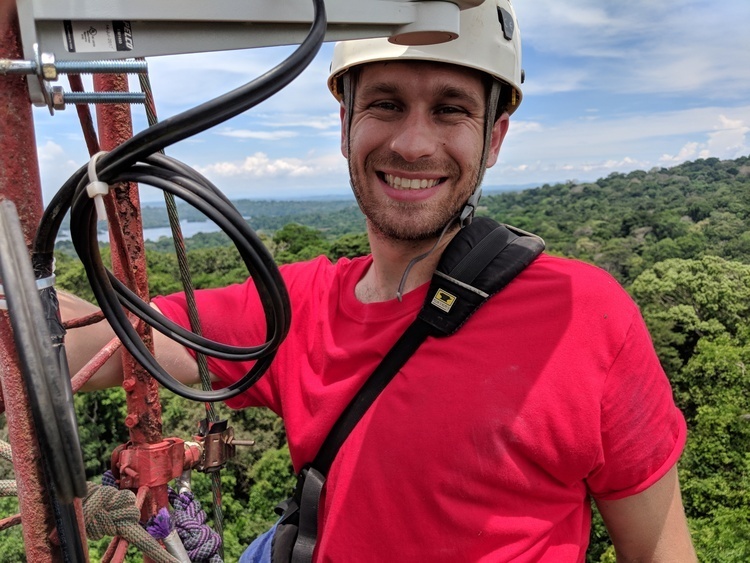Events
Title: TBD
Abstract: TBD
Bio: Dr. Shaila Musharoff is a population and statistical geneticist studying human disease architecture with the goal of reducing health disparities. Shaila uses population genetic approaches to understand how demographic and cultural factors like admixture, assortative mating, migration, and sex-bias affect patterns of genetic variation. They use these insights to develop statistical methods to interrogate disease (e.g. genome-wide association studies, GWAS) and predict traits (e.g. polygenic scores, PGS) in diverse and admixed populations. Current projects in the lab include investigating the extent to which population-specific gene-by-environment interactions drive disease risk, accounting for genetic and environmental heterogeneity in population samples, and developing continuous descriptors of ancestry for disease and demographic studies.
Shaila joined the department in January 2023 as part of the Cornell CALS and the national NIH FIRST faculty cohorts. Previously, Shaila earned a Ph.D. in Genetics advised by Dr. Carlos Bustamante at Stanford University, then completed Postdoctoral training positions with Dr. Noah Zaitlen at UCSF and with Dr. Jonathan Pritchard at Stanford University.
Seminar title: When, where, and why do giant trees die?
Hosted by Xiangtao Xu
Seminar title: A genetic perspective on the future of quaking aspen, an ecologically important mixed-ploidy tree.
Hosted by Xiangtao Xu
Nobel laureate Jack Szostak, Ph.D. ’77, will return to campus to give the 2025 Ef Racker Lecture on Oct. 9.
Szostak, a professor at the University of Chicago, won the 2009 Nobel Prize in Physiology or Medicine for discovering how chromosomes are protected by telomeres and the enzyme telomerase.
In his talk, “The Origin of Life and the Nature of the First Cells,” Szostak will share what he’s investigated about the origins of primitive life, informed by his expertise in the biochemistry of DNA. Sponsored by the Department of Molecular Biology and Genetics, the Racker Lecture is open to the public and will take place at 7:30 p.m. in the Biotechnology Building, Room G10.
“Having unlocked some of the essential regulatory mechanisms of DNA and, with collaborators, expanded our understanding of a critical aspect of aging and cancer progression, Dr. Jack Szostak is applying his mastery toward answering one of the greatest questions in science, of how life began,” said Peter John Loewen, the Harold Tanner Dean of the College of Arts and Sciences (A&S). “I’m honored to welcome Dr. Szostak back to Cornell.”
Szostak’s many major accomplishments include his work, with Elizabeth Blackburn and Carol Greider, demonstrating how chromosomes are copied and protected against degradation as cells continue to divide, through the actions of the enzyme telomerase, said Richard Cerione, Distinguished Professor of Arts & Sciences in chemistry (A&S) and the College of Veterinary Medicine. Szostak shared the 2006 Albert Lasker Basic Medical Research Award and the 2009 Nobel Prize with Blackburn and Greider for their fundamental contributions to our understanding of telomere structure and function and the role of telomere maintenance in preventing cellular senescence.
“Subsequent studies would show the consequences for telomerase activity in the process of aging, as well as cancer and various age-related disorders,” Cerione said. “His long-standing interests in genome biology led him to studies directed at understanding the origins of life. He is developing methods to understand the development of the primitive cell and the establishment of a functional cell membrane and self-replicating nucleic acids, toward the goal of understanding how life on earth began.”
In his talk, Szostak will explore how RNA-based protocells emerged from the chemistry of the early Earth and discuss recent progress on related questions, including whether RNA copying and replication can occur without enzymes, and how the first protocell membranes grew and divided.
During his visit to Cornell, Szostak will also give a scientific lecture, “Nature and the Properties of the First Cell Membranes,” Oct. 10 at 4 p.m. in the Biotechnology Building Atrium, and he will speak on “Replication of the Primordial Genetic Material” Oct. 14 at 9:10 a.m. during the Weill Institute Symposium, an all-day life sciences event hosted by Cornell’s Weill Institute for Cell and Molecular Biology in the Biotechnology Building, room G10.
Szostak is a university professor and professor of chemistry at the University of Chicago, and an investigator of the Howard Hughes Medical Institute. He is a member of the National Academy of Sciences and the American Philosophical Society, and a fellow of the Royal Society, the American Academy of Arts and Sciences, and the American Association for the Advancement of Science.
He received his B.Sc. from McGill University in 1972 before earning his Ph.D. at Cornell.
In the 1990s Szostak developed in vitro selection as a tool for the isolation of functional RNA, DNA and protein molecules from large pools of random sequences. His laboratory used in vitro selection and directed evolution to isolate and characterize numerous nucleic acid sequences with specific ligand binding and catalytic properties. From 2000 until the present Szostak’s research interests have focused on the laboratory synthesis of self-replicating systems and the origin of life.
Established in 1992, the Ef Racker Lectureship in Biology and Medicine honors scientist and artist Efraim Racker (1913-1991) to bring to Cornell eminent scientists who have made important contributions to biology, chemistry and medicine. Szostak’s adviser at Cornell, the late Ray Wu, was a close colleague of Racker, “which makes his selection as this year’s Racker lecturer quite special,” Cerione said.
The series is sponsored by the Cornell University Department of Molecular Biology and Genetics.
Seminar title: Overwintering insects: Cold, dry, and hungry (but thriving anyway).
Hosted by Maren Vitousek
Seminar title: How genetic architecture influences macroevolutionary divergence.
Hosted by Anurag Agrawal
Sea stars that are cornerstones of coastal garden worlds, corals stronger than steel, sponges who create their own chemical compounds to fight off disease—these are just a few of the “superpowers” to be found among the myriad invertebrates of Earth’s seas. And the amazing abilities of these spineless creatures might just hold the key to our own survival, says marine ecologist Drew Harvell, professor emerita of ecology and evolutionary biology.
Join us for a live, hybrid, Chats in the Stacks book talk with Harvell as she dives into the world of underwater marvels and her latest publication, The Ocean's Menagerie: How Earth's Strangest Creatures Reshape the Rules of Life (Penguin Random House, 2025). Harvell will discuss how ocean invertebrates, among the oldest and most diverse organisms on earth, are seemingly able to bend the “rules” of land-based biology with 600 million years of adaptation to problems of disease, energy consumption, nutrition, and defense, and how their biomedical, engineering, and energy innovations could inspire solutions to many issues facing us humans and our changing planet.
This talk is hosted by Mann Library.
To attend the talk virtually, please register here:
https://cornell.zoom.us/webinar/register/WN_vqyXFEbGQ62BYMLD4Mx8kQ#/registration
Seminar title: Disease Outbreaks of Foundation and Keystone Species are Heating up on a Continental Scale.
Hosted by Leslie Babonis
Seminar title: Plants anticipating help: a new hypothesis in plant defense theory.
Hosted by Anurag Agrawal
Seminar title: Novel Freshwater HAB Allelopathy: Everyone needs their vitamins!
Hosted by Meredith Holgerson, Roxanne Marino, and Christy Goodale










